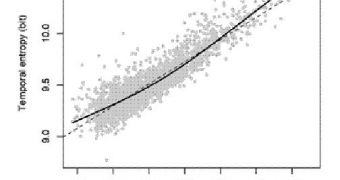In a new scientific study, which analyzed human reaction times to various events, it was established that the connections inside the human brain only transported about 60 bits of information per second. The investigation relied on century-old knowledge, which held that the brain's processing speed was intimately related to the amount of time it took for it to complete a task. This duration also reflects the time it takes for the cognitive processes involved in solving a problem to act, Technology Review reports. Reaction times have been a window into the human brain for many years, experts say.
One test for reaction times is called a visual lexical decision task. A participant watches a screen, where numerous letters appear. The observer needs to press a button if the string they see is a word or a non-word. The task evaluates the brain's ability to detect and identify patterns, as well as the actual time it needs to do this. This type of experiments has eventually led to Hick's Law, which holds that the time it takes to make a choice is linearly related to the entropy of the possible alternatives. This is also one of the few rules that can be found in the field of experimental psychology.
The term entropy is used here to describe the amount of information that is needed so that the state of the entire system can be established. French researcher Fermin Moscoso Del Prado Martin, from the Universite de Provence, now proposes a new approach to studying reaction times. His method relies on analyzing the entropy of reaction time distribution, as opposed to the previous, thermodynamical approach. He believes that entropy distribution is a more accurate indicator, because it always remains independent of the type of experiment that is being conducted.
The French expert's method also seems to contradict Hick's Law. In experiments, it was determined that brain processing speeds were not constant during the same task, which is in direct violation of the law. “This finding suggests an adaptive system where the processing load is dynamically adjusted to the task demands,” Martin says. From an evolutionary standpoint, the new idea makes more sense. The brain is highly unlikely to perform repeated tasks at the same speed, without trying to find a method of adapting itself and performing them faster.

 14 DAY TRIAL //
14 DAY TRIAL //